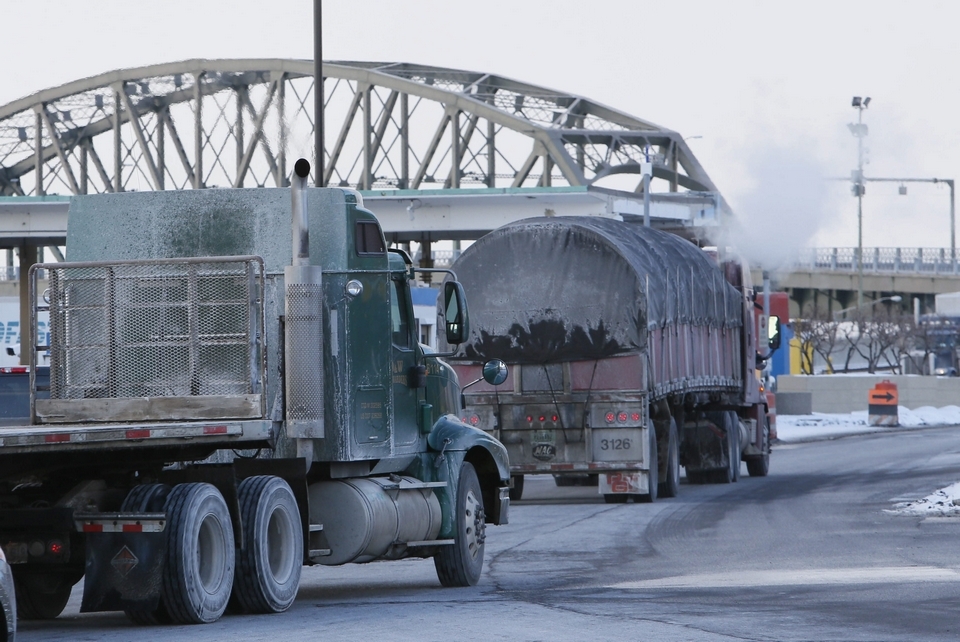London Festival Regulations: Potential Threat To Live Music

Table of Contents
The Rise of Restrictive Licensing and Noise Complaints
The escalating number of noise complaints and subsequent stricter noise level limits are significantly impacting London's festival landscape. This, combined with increasingly complex licensing procedures, creates a challenging environment for organizers, particularly smaller, independent festivals.
Impact of Noise Pollution Ordinances
- Increased Noise Limits: Many festivals are now forced to operate under drastically reduced sound levels, impacting the overall experience for attendees and potentially reducing the appeal of certain acts.
- Specific Examples: Last year, the "Greenwich Groove Festival" was forced to cancel its headline act due to stringent noise limits imposed by the local council, resulting in significant financial losses. Similarly, the "Clapham Common Carnival" saw reduced attendance due to lower sound levels.
- Statistics: A recent report by the Music Venue Trust indicates a 25% increase in noise complaints against London festivals in the past three years, directly leading to stricter regulations in several boroughs.
- Balancing Community Needs: While addressing noise pollution is crucial, the challenge lies in finding a balance that respects community needs without stifling the city's vibrant music scene. Effective noise mitigation strategies, such as sound barriers and advanced monitoring techniques, should be explored instead of blanket restrictions.
Complex Licensing Procedures and Costs
Obtaining the necessary licenses for a London festival is a complex and costly process.
- Multiple Licenses Required: Organizers often need to secure multiple licenses, including event permits, public liability insurance, alcohol licenses, and potentially even road closure permits. The application processes for each can be lengthy and require substantial administrative effort.
- High Fees: The associated fees for these licenses can be substantial, particularly for smaller festivals operating on tighter budgets. These costs often disproportionately impact independent organizers, pushing them out of the market.
- Licensing Delays: Delays in the licensing process are common, causing significant disruption to festival planning and potentially leading to last-minute cancellations or reduced-scale events. This uncertainty makes it difficult for organizers to secure artists, vendors, and sponsors.
- Disproportionate Impact on Smaller Festivals: The high costs and bureaucratic hurdles associated with licensing disproportionately affect smaller, independent festivals, which often lack the resources and experience to navigate the complex regulatory landscape.
Environmental Concerns and Sustainability Regulations
Environmental concerns are increasingly shaping London Festival Regulations, leading to stricter waste management and carbon footprint requirements. While laudable in their aim, these regulations can pose challenges to festival viability.
Waste Management and Recycling Requirements
- Stringent Recycling Targets: Festivals are now required to meet increasingly ambitious recycling targets, necessitating substantial investments in waste management infrastructure and staff.
- Cost Implications: The costs of implementing and monitoring stringent waste management systems are significant, adding to the already high operational expenses of running a festival.
- Balancing Sustainability and Viability: Striking a balance between environmental responsibility and economic sustainability is crucial. While festivals should strive for eco-friendly practices, regulations must consider the financial realities faced by organizers.
- Innovative Sustainable Practices: Many festivals are proactively embracing innovative sustainable practices such as using compostable materials, implementing reusable cup schemes, and partnering with local recycling initiatives.
Carbon Footprint and Transportation Policies
Regulations around carbon emissions and transportation are also impacting festival organization.
- Travel Restrictions: Restrictions on vehicle access to festival sites can pose logistical challenges for transporting equipment and managing attendee travel.
- Sustainable Transportation Solutions: Festivals are encouraged to promote sustainable transportation options such as public transport, cycling, and walking. However, implementing these requires careful planning and potentially extra investment in infrastructure and communication.
- Increased Ticket Prices: The added costs associated with meeting environmental regulations can contribute to higher ticket prices, potentially affecting accessibility for some attendees.
Public Safety and Security Regulations
Public safety is paramount, and the increased emphasis on security measures has led to stricter regulations and higher costs for festivals.
Increased Security Measures and Costs
- Enhanced Security Personnel: Festivals now require a significantly larger number of security personnel, including trained stewards, medical staff, and potentially even police presence.
- Crowd Control Measures: Investing in crowd control measures, such as barriers and effective crowd management strategies, is essential but adds to the financial burden.
- Impact on Ticket Prices: The increased security costs are often passed on to attendees through higher ticket prices, potentially limiting accessibility for some.
Impact on Festival Capacity and Attendance
Safety regulations can impact festival capacity and attendance.
- Capacity Limits: Stricter regulations on crowd density can lead to lower capacity limits, reducing the potential revenue for organizers.
- Impact on Smaller Events: Smaller, more intimate events may be less affected by capacity restrictions compared to large-scale festivals.
Conclusion
The cumulative impact of London Festival Regulations on the live music scene is significant. Overly restrictive licensing, environmental, and public safety regulations are creating a challenging and costly environment for festival organizers, particularly smaller, independent events. This poses a significant threat to the future of live music in London. It's crucial that we find a way to balance the needs of communities with the preservation of London's vibrant live music scene. Let's work together to ensure fair and sustainable London Festival Regulations that support the future of music in our city. Contact your local representatives, support local festivals, and participate in online discussions to advocate for sensible regulations that protect both communities and the city's unique musical heritage.

Featured Posts
-
 Understanding The Bare Beating Phenomenon On Public Transport Systems
May 19, 2025
Understanding The Bare Beating Phenomenon On Public Transport Systems
May 19, 2025 -
 Ufc 313 Pereira Vs Ankalaev This Weekends Fight Card
May 19, 2025
Ufc 313 Pereira Vs Ankalaev This Weekends Fight Card
May 19, 2025 -
 First Class Stamp Price Hike 1 70 Blow To Consumers
May 19, 2025
First Class Stamp Price Hike 1 70 Blow To Consumers
May 19, 2025 -
 Trump In Gazze Paylasimi Lueks Zenginlik Ve Siyasi Skandal
May 19, 2025
Trump In Gazze Paylasimi Lueks Zenginlik Ve Siyasi Skandal
May 19, 2025 -
 Real Madrids Transfer Strategy Shifts After Mbappes Lackluster Arsenal Display
May 19, 2025
Real Madrids Transfer Strategy Shifts After Mbappes Lackluster Arsenal Display
May 19, 2025
